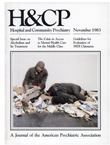The Genetics of Alcoholism
Abstract
One method of investigating the genetic etiology of alcoholism is to study individuals who were separated soon after birth from their alcoholic biological parents. The author and his colleagues conducted a series of such studies in Denmark; they conduded that, despite little exposure to the alcoholic biological parent, the sons of alcoholics were about four times more likely to be alcoholic than were the sons of nonalcoholics. They alsofound that having an alcoholic biological parent did not increase the sons' risk of developing psychiatric disorders other than alcoholism. After reviewing the results of four other studies that resemble the Danish series, the author discusses two investigations of the possible mode of transmission of alcoholism and describes further evidence for the proposed diagnostic category offamilial alcoholism.
Access content
To read the fulltext, please use one of the options below to sign in or purchase access.- Personal login
- Institutional Login
- Sign in via OpenAthens
- Register for access
-
Please login/register if you wish to pair your device and check access availability.
Not a subscriber?
PsychiatryOnline subscription options offer access to the DSM-5 library, books, journals, CME, and patient resources. This all-in-one virtual library provides psychiatrists and mental health professionals with key resources for diagnosis, treatment, research, and professional development.
Need more help? PsychiatryOnline Customer Service may be reached by emailing [email protected] or by calling 800-368-5777 (in the U.S.) or 703-907-7322 (outside the U.S.).



